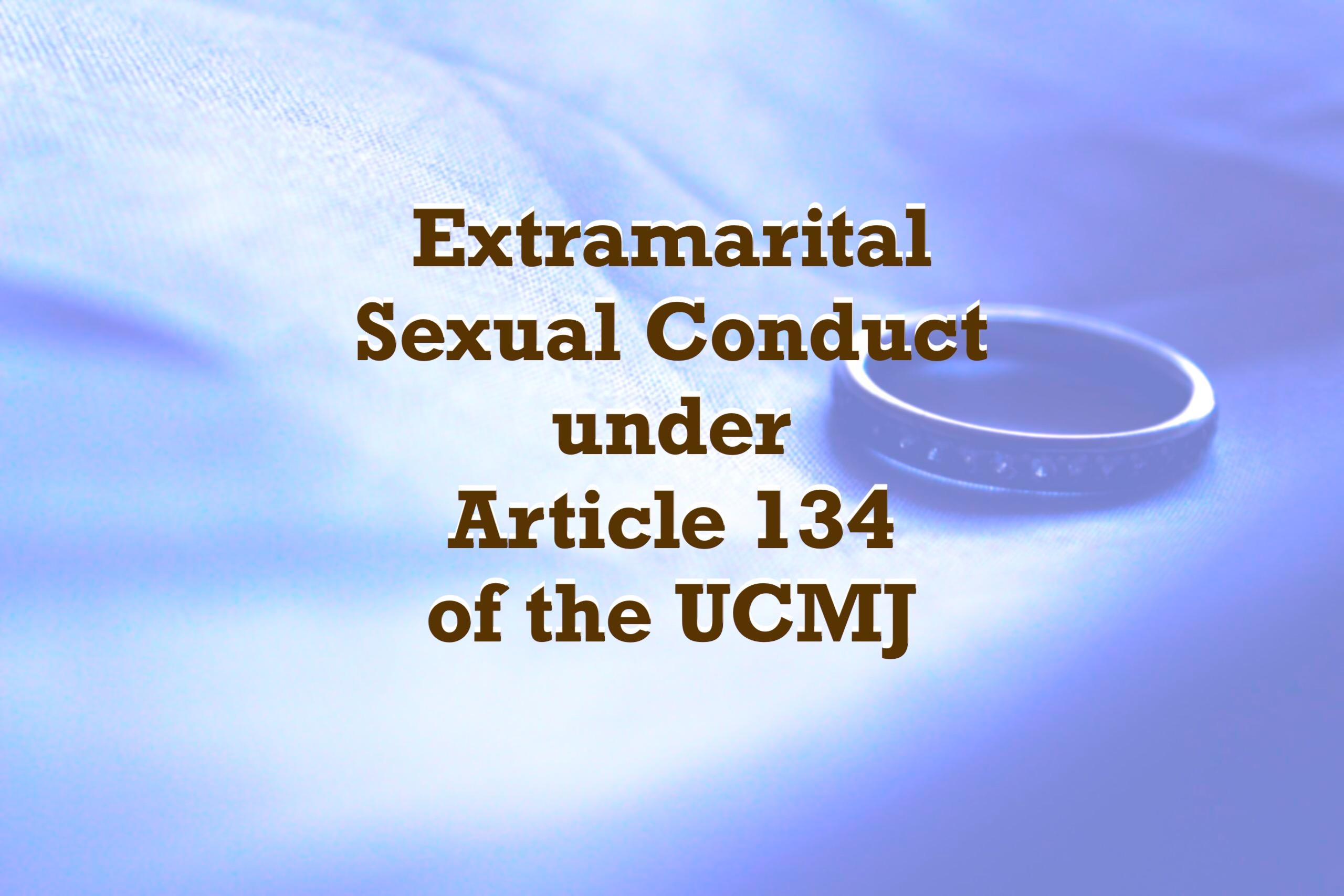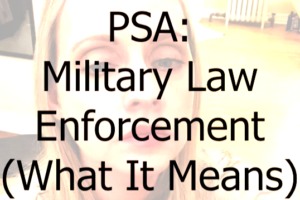
In the civilian world, adultery is generally not a crime; in the few states that have it on the books (only 16 states), it is rarely prosecuted. But in the military, it is punishable under the UCMJ and is often the subject of a command and criminal investigation, and be charged at courts-martial.
As a defense attorney representing military personnel, a common charge that I see is Extramarital Sexual Conduct under Article 134, formerly known as “Adultery.” This particular UCMJ Article makes it a crime for married military personnel to engage in sexual conduct with another person who is not their spouse when that conduct is also prejudicial to good order and discipline or service discrediting. Simply put, if you are in the military and married, cheating on your spouse is a crime if it harms the unit or the reputation of the service.
While extramarital sexual conduct may seem like a private matter, the military takes it very seriously, as it can have a significant impact on the morale and effectiveness of the military unit.
If you are facing charges of Extramarital Sexual Conduct under Article 134, UCMJ, it is important to understand the elements of the crime and what you can expect during the legal process. In this article, I provide a brief overview of the law and offer some tips for protecting your rights and defending yourself against these charges.
The Elements of Extramarital Sexual Conduct
What is the definition of cheating? This question has been the subject of debate between couples on a third date since the beginning of time. Until 2019, the Military defined cheating to be when a legally marriedperson has “sexual intercourse” with someone who is not their spouse; therefore, cheating was “any penetration, however slight, of the female sex organ by the penis, and ejaculation was not required.” Therefore, Adultery used to apply only to heterosexual conduct, penis to vagina intercourse. Now, the law pertains to everyone, regardless of sexual orientation, and includes additional sexual acts.
After 2019, the military updated and changed what it defined as cheating.
Under the UCMJ, cheating now encompasses any of the following acts by persons of the same or opposite sex with another person who is not their spouse:
(1) genital to genital sexual intercourse;
(2) oral to genital sexual intercourse;
(3) anal to genital sexual intercourse; and
(4) oral to anal sexual intercourse.
Additionally, to be criminal under the UCMJ, the conduct must be prejudicial to good order and discipline or service discrediting. This means that the conduct must have a negative impact on the military community, such as bringing discredit to the service or undermining the authority of the military.
What if you are NOT married but the person you are engaging in sexual conduct with is married?
The law only requires at least one person involved in the extramarital sexual conduct be married. So although you are not the “cheater” because you are not married to anyone, but you know (or should know) the person you are having sex with is married, then there is a possibility you can still be charged with Extramarital Sexual Conduct if you are a servicemember; especially if the prosecution can show the affair was prejudicial to good order and discipline or service discrediting.
Defending Yourself against Extramarital Sexual Conduct Charges
If you are facing charges of Extramarital Sexual Conduct under Article 134, it is important to take the allegations seriously and take immediate steps to protect your rights.
One of the most important things you can do is to seek the advice of an experienced military defense attorney. An attorney can help you understand the specific elements of the case against you and can provide guidance on the best course of action and defenses for your particular case. There are numerous defenses to this allegation which all depend on the specific facts and situation of your circumstances.
Regardless of the specific circumstances of your case, it is important to have an attorney on your side who understands the military justice system and can provide you with the support and guidance you need to protect your rights and defend yourself against the charges.
Conclusion
Extramarital sexual conduct under Article 134 of the UCMJ is a serious allegation that can have a significant impact on your military career and your future. If you are facing charges of extramarital sexual conduct, it is important to seek the advice of an experienced military defense attorney as soon as possible. An attorney can help you understand the charges against you and can provide you with the support and guidance you need to defend yourself against the allegations
You Might Also Like These Articles

Messy Military Lawyer. Today's public service announcement involves military law enforcement and what it means. [embed] https://youtu.be/glqwa-eYbmM [/embed] If you…
Read More
Calls for consultation often ask me their chances for conviction or acquittal. Mind you, this is with no investigation for…
Read More
Years ago, when the rating scheme for judge advocates changed from being rated within the Office of the Staff Judge…
Read More




 REQUEST A CONSULTATION
REQUEST A CONSULTATION 